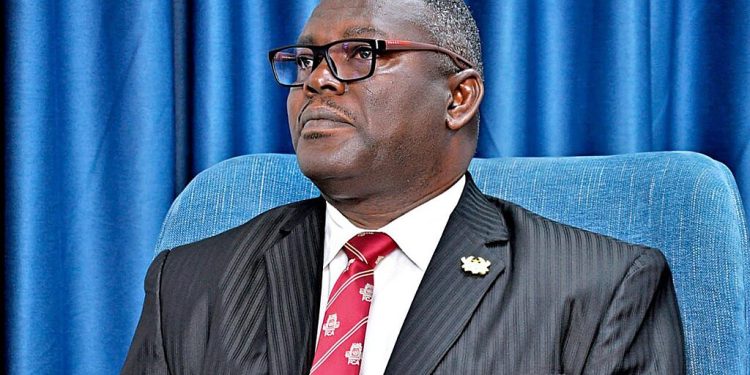Law Professor Advocates Blacklisting of Private Firms Engaged in Corruption From Public Procurement Opportunities
Associate Professor at the University of Ghana School of Law, Prof Abdallah Ali-Nakyea, has issued a clarion call for urgent ethical reforms within Ghana’s private sector, warning that corporate actors remain significant enablers of public sector corruption and must not be allowed to operate with impunity.
Delivering remarks at a high-level anti-corruption forum organised by the Media Foundation for West Africa (MFWA) on Thursday, June 26, at the Alisa Hotel in Accra, Prof Ali-Nakyea underscored the critical role of private businesses in perpetuating illicit transactions, stressing that integrity within the private sector is as important as accountability in the public service.
“The private sector should adopt ethical practices and principles,” he asserted. “Many companies benefit directly from state contracts yet operate without regard for transparency or integrity.”
Prof Ali-Nakyea advocated for a zero-tolerance regime that would see firms engaged in unethical practices blacklisted from public procurement opportunities. According to him, the state’s dominant role in Ghana’s economy gives it the leverage to enforce ethical compliance.
“Government is the biggest buyer, biggest supplier, and biggest employer. All the private sector jobs are coming from the government. Why can’t we blacklist unethical businesses so that we can promote the good ones?” he queried.
He emphasised that regulatory laxity, limited financial oversight, and Ghana’s dependency on external support had collectively undermined the country’s ability to combat corruption and stem illicit financial flows (IFFs).
“The banking system needs checks and monitoring,” he said. “And then the international organisations – I keep saying at such fora, we do not need loans, we do not need handouts. Help us strengthen. You see how we could’ve saved 5 billion from corruption, 2 billion from illicit flows from mining. Do we need to borrow?”
Touching on legal reforms, the tax and financial law expert called for amendments to Ghana’s anti-corruption legislation to provide for full recovery of misappropriated public funds, along with naming and shaming of culprits.
“Let’s amend anti-corruption laws to close the loopholes identified. We should have provisions for the recovery of funds. I believe in name, recover and punish,” he stated. “If you name, recover and punish, the result is shame. But if you name, punish and don’t recover, then nothing has been done.”
He further called for the introduction of stricter sanctions and reinforced whistleblower protections to empower citizens to report misconduct without fear of retaliation.
“We need stricter penalties for offenders. We need stronger whistleblower protection, and these are some recommendations,” he noted.
The MFWA forum, themed “Hidden Riches, Hollow Laws: Dissecting the Loopholes That Fuel Corruption and Illicit Financial Flows”, convened stakeholders from civil society, academia, the legal fraternity, and the media to deliberate on institutional weaknesses and recommend sustainable reforms to Ghana’s anti-corruption architecture.







